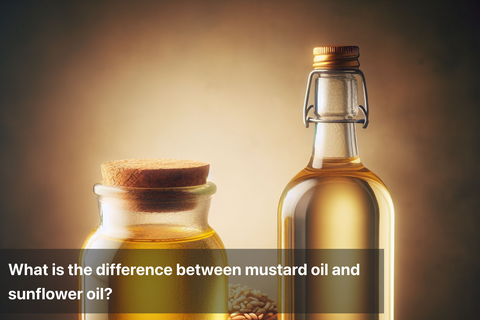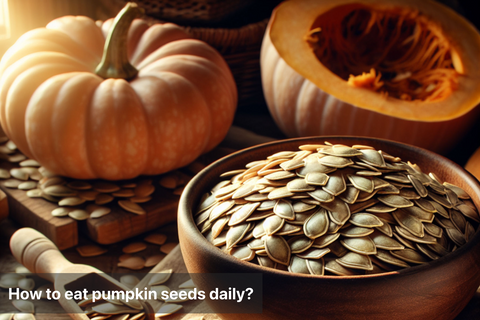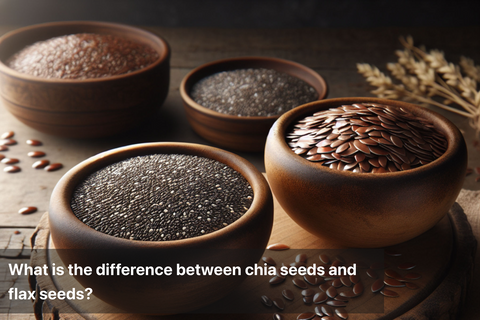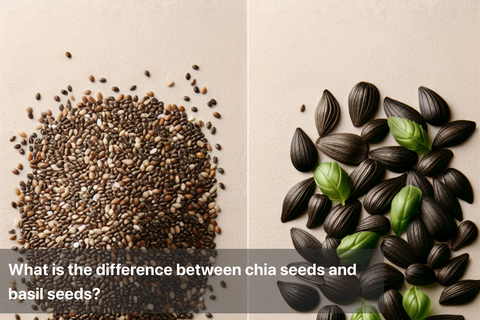
Top 5 Healthy Fats Suitable for a Keto Diet
The ketogenic diet, popularly called the keto diet, is high in fat and low in carbohydrates. The macronutrients in the diet are roughly 55% to 60% fat, 30% to 35% protein, and 5% to 10% carbohydrates. Carbohydrates range from 20 to 50 g per day in a 2000 kcal per day diet.
So, in an eating plan where fat accounts for up to 80% of calories, one needs to prioritize it. It's crucial to remember that not all fats are the same. While some types of fat carry health risks, such as heart disease, some sources of fat are better for you than others.
We'll learn about more wholesome fats to include in your typical keto meals in the following article.
Harvard School of Public Health lists the following foods as having unsaturated fat:
- Olives and olive oil
- Avocados and avocado oil
- Seeds, such as flax and chia
- Nuts, such as walnuts, almonds, etc
- Oily fish, such as salmon and tuna
1. Olive Oil
For decades, researchers have studied the benefits of olives and olive oil, and it has been discovered that olives are a good source of MUFA (good fat). This explains why it has made its way into many of the world's healthiest diets.
Olives contain a lot of good fats, but they also have vitamin E and other plant compounds that lower inflammation and your risk of developing chronic illnesses like osteoporosis, cancer, and heart disease. Olive oil can be used as a base for a marinade or dressing for roasted meats, vegetables, or fresh salads. It can also be drizzled over grilled or lightly sauteed vegetables to increase their fat content. Certain vitamins, such as A, D, E, and K, are absorbed by the body more readily when olive oil is consumed with vegetables. Hence, olive oil can be considered a healthy keto food.
2. Avocado and avocado oil
Despite being classified as a fruit, avocados are a great source of heart-healthy monounsaturated fats (MUFAs). Additionally, they are rich in fibre, which promotes digestive health. 161 calories, 2 grams of protein, 15 grams of fat, 9 grams of total carbohydrates, and 7 grams of fibre are found in half an avocado (bringing it to 2 g of net carbs). So, you can include avocados in your keto meals.
Although avocado oil is high in MUFAs that fight inflammation, unlike olive oil, one of the biggest advantages of using avocado oil is that it can withstand high-heat cooking. According to research, avocados and their oil may promote healthy ageing, stable blood sugar levels, and heart health.
3. Nuts
You can increase your intake of fibre, plant-based protein, and healthy fats by including a variety of nuts in your diet. The nutritional composition of nuts varies, so eating a variety of your favourites will help you reap the most rewards. The same goes for the kinds of nut butter.
Pistachios, walnuts, almonds, cashews, and other nuts are excellent choices for low-carb, high-fat diets such as keto. Although nuts contain unsaturated fats, they also contain carbohydrates, so check the labels closely before consuming.
4. Fatty fish and fish oils
An excellent addition to a balanced ketogenic diet is fatty fish like salmon, tuna, and sardines. They are abundant in heart-friendly omega-3 fats and protein. A significant amount of vitamin D, a nutrient essential for immune function, bone health, and other processes, is also present in some varieties, such as salmon.
Due to its long chain of polyunsaturated fat composition, fish oil makes the cut. Simply put, the body cannot produce the omega-6 and -3 fatty acids that are found in fish oil and other fats. Fish oils should be consumed as supplements or, even better, directly cook a fish rather than using its oil in day-to-day cooking.
5. Flax seeds and chia seeds
Chia seeds are rich in healthy fats and fibre, making them an ideal keto food. Flax seeds are a fantastic source of fibre, and anti-inflammatory omega-3 fats, and also contain health-promoting plant compounds.
Various plant substances, such as quercetin and kaempferol, which may lessen inflammation and guard against chronic illnesses like cancer, heart disease, and diabetes, are also present in these seeds. They can be added to smoothies, soups, roasted vegetables, yoghurt, salads, and energy bites. They can also be included in dressings and sauces.
The bottom line
Oily fish, olive oil, avocado oil, nuts, nut butter, seeds, and oily fish are all acceptable fats for the ketogenic diet. Following this diet may lead a person to prefer white meat over red meat and stay away from processed meats. Starting a ketogenic diet can make it difficult to consume the recommended amount of fat. A person can make sure they eat enough fat each day by planning their keto meals. Always consult a nutritionist or dietician before making any major shift in your diet.
One can meet the requirements for ketosis by pre-planning meals and increasing the number of healthy fats in snacks, along with vegetables, salads, and hot beverages. Checking the nutritional values on food labels is another smart move.
References:
https://www.womenshealthmag.com/weight-loss/a24434337/keto-fat-sources/
https://www.everydayhealth.com/ketogenic-diet/diet/best-worst-fats-eat-on-keto-diet/
https://www.medicalnewstoday.com/articles/healthy-fats-for-keto#is-keto-healthy
https://www.healthline.com/nutrition/healthy-fats-for-keto#TOC_TITLE_HDR_8
This Blog post is an initiative by Lo! Foods, to provide accurate and Nutritionist / Doctor approved information related to Health. Lo! Foods is India's leading brand for Everyday Functional Foods. Foods designed for specific Health conditions or Needs. Lo! Foods also runs India's largest range of Low Carb Healthy Cloud Kitchens, under the brand names of Lo!, ProteinChef, ATH (All Things Healthy) and DiabeSmart.















Leave a comment
Your email address will not be published.